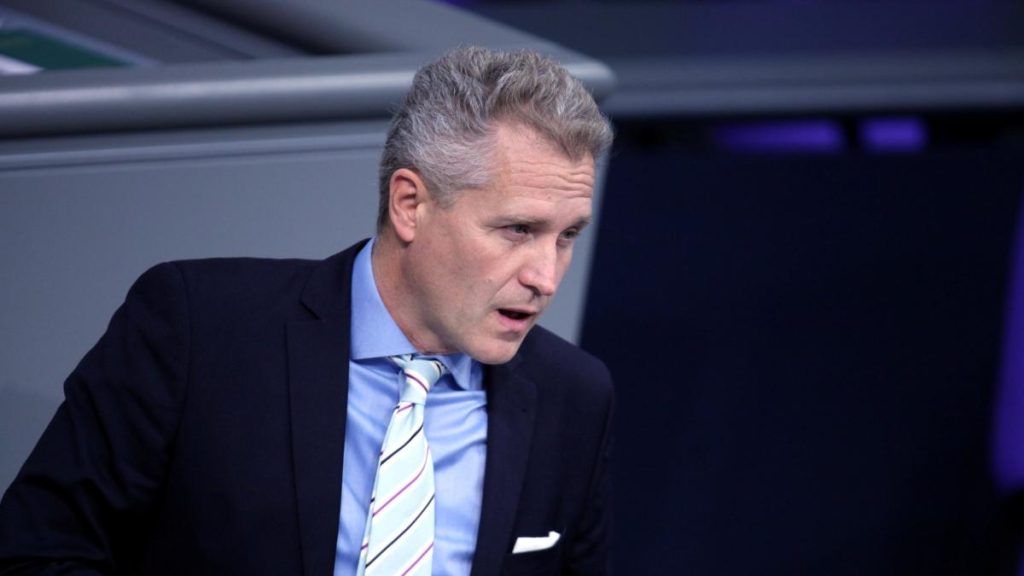The far-right Alternative for Germany (AfD) party is embroiled in controversy as one of its European election candidates, Petr Bystron, is accused of receiving money from Russia. Bystron denies the allegations, calling them unfounded. AfD politician Maximilian Krah has called for Bystron to refrain from participating in election campaign events until the accusations are clarified. The party is now considering imposing a ban on Bystron’s campaign appearances until the issue is resolved.
The allegations against Bystron stem from a Czech newspaper report claiming that he received money from Russia. The AfD is demanding clarification from Bystron on the accusations. The party’s co-chairmen, Alice Weidel and Tino Chrupalla, have requested Bystron to provide a written statement addressing the allegations by a certain deadline. Bystron has stated that he has done nothing wrong and is willing to discuss the matter with party leadership after Easter.
The controversy relates to Bystron’s alleged involvement with the pro-Russian network “Voice of Europe,” which the Czech government recently placed on its national sanctions list. Bystron’s name reportedly came up during a cabinet meeting in Prague, with ministers mentioning audio recordings as evidence against him. “Voice of Europe” has featured interviews with AfD politicians Maximilian Krah and Petr Bystron, who are the top two candidates on the party’s list for the European elections. Krah has denied receiving payment for his interviews.
In response to the allegations, Bystron has called for the Czech intelligence service to release the alleged recordings to clarify the situation. He maintains that the accusations against him are unproven and unsubstantiated. Bystron has expressed willingness to meet with the party leadership for a personal discussion after Easter to address the issue. Meanwhile, the AfD is deliberating on whether to ban Bystron from participating in election campaign events until the allegations are resolved, with a decision expected at an upcoming meeting of the party’s Federal Board.
The contentious issue highlights internal divisions within the AfD regarding Bystron’s alleged ties to Russia. While Bystron denies any wrongdoing and challenges the veracity of the accusations, other party members, such as Maximilian Krah, are calling for precautionary measures until the matter is clarified. The outcome of the party’s decision on Bystron’s campaign participation could have implications for the AfD’s image and electoral prospects in the upcoming European elections.
As the AfD grapples with the aftermath of the allegations against Bystron, the party faces scrutiny over its relationships with pro-Russian networks and individuals. Bystron’s case raises questions about the party’s stance on foreign influences and its commitment to transparency and accountability. The controversy surrounding Bystron’s alleged receipt of money from Russia underscores the challenges and complexities facing the AfD as it seeks to navigate internal conflicts and external pressures in the lead-up to the European elections.


